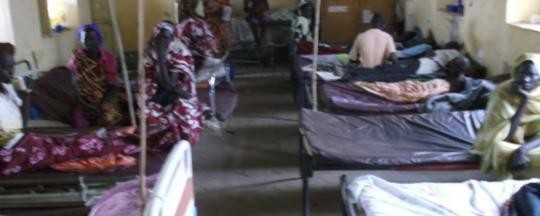Police in the Abyei Administrative Area are urging relatives or friends of people who die in the hospital to take them away for burial. Officers say they have had to bury 14 bodies that were left in the MSF hospital in Agok since the beginning of this year.
It is thought some relatives leave bodies behind because they cannot meet the costs of a burial.
A community police regimental officer in Agok, William Apok Atem, said that anyone accompanying a patient to hospital should take responsibility for their body if they died. It was important for that person to tell police where the patient lived, and what illness they had suffered.
Action would be taken against anyone found to have abandoned a body in hospital, he said.
Police say most of the bodies they bury are of people who came to Abyei to escape the fighting in Unity state. 29-year-old Mijok Duop Gatluak is one of those who came from Unity. He explained that among his Nuer community, burying bodies was left to the elders of the dead person’s family. If there were no such relatives nearby, the task sometimes fell to the police.
But he said he would be urging young Nuer people to contribute money to pay for police burials. A Dinka Ngok elder in Agok, 69-year old Chol Miyom Aley, said members of the community should show compassion towards those who had fled violence. It was a tradition that whoever was with a person who died should not abandon the body, even if they were not a relative.
When a patient dies in the MSF hospital, the death is reported to the police and the RRC. The RRC coordinator in Agok, Santino Mou Mayol, said the matter had been discussed with those who had come from Unity, but there were differences in culture and traditions.
He said the RRC was urging the police and local chiefs to appoint a coordinator to work among the Nuer community. The coordinator would act as a focal point to solve problems such as this.
Reporting by Abyei Today




